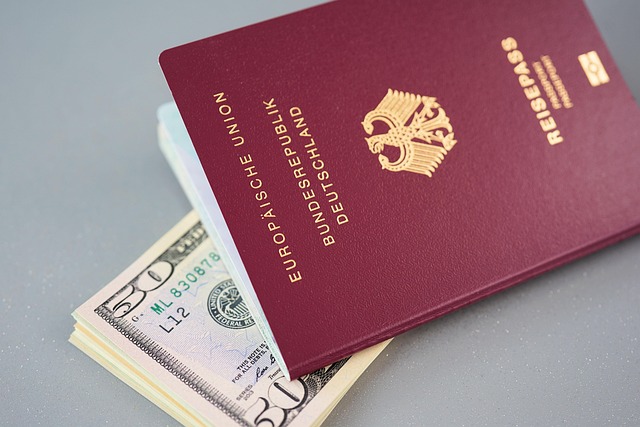Exploring the Concept of Jobs Abroad: Key Considerations and Insights
In today’s globalized world, many individuals consider the possibility of working abroad to experience new cultures, gain different work experiences, or pursue better career opportunities. While the prospect of working abroad is appealing, it’s essential to understand the general factors to consider before making this decision.

The General Search for Jobs Abroad
Beginning the journey toward international employment starts with understanding where and how to search effectively. The global job market offers diverse opportunities across continents, industries, and skill levels. Individuals typically start by identifying countries that align with their professional qualifications, language abilities, and personal interests. Online job platforms, professional networking sites, and industry-specific forums serve as valuable starting points for exploring what positions exist in different regions. Many professionals also consider factors such as quality of life, cost of living, cultural compatibility, and career advancement potential when narrowing down target destinations. The search process requires patience and thorough research, as international job markets operate differently from domestic ones, with varying application processes, expectations, and timelines.
Using Resources to Learn About Jobs Abroad
A wealth of resources exists to help prospective international workers gather information and make informed decisions. Government websites often provide official guidance on work permits, visa requirements, and labor market information for specific countries. International organizations and expatriate communities offer firsthand insights into living and working conditions in various locations. Professional associations within specific industries frequently publish reports on global employment trends and opportunities. Educational institutions and career counseling services may offer workshops or seminars focused on international career development. Online forums and social media groups connect individuals with others who have successfully transitioned to working abroad, providing practical advice and answering common questions. Utilizing multiple sources of information helps build a comprehensive understanding of what to expect and how to prepare for the transition.
Identifying High-Demand Sectors for Working Abroad
Certain industries consistently demonstrate strong demand for international talent across multiple countries. The technology sector continues to seek skilled professionals in software development, data analysis, cybersecurity, and artificial intelligence. Healthcare remains a critical field with ongoing needs for doctors, nurses, medical technicians, and healthcare administrators in many regions. Engineering disciplines, particularly civil, mechanical, and electrical engineering, attract international recruitment efforts for infrastructure and development projects. Education professionals, including teachers and academic researchers, find opportunities in international schools, universities, and language instruction programs. The hospitality and tourism industry regularly employs international workers in management, culinary arts, and customer service roles. Financial services, renewable energy, and construction also represent sectors with consistent international hiring activity. Understanding which industries align with one’s skills and qualifications helps focus the job search more effectively.
Understanding Careers in International Relations
Professional paths in international relations encompass a broad range of roles beyond traditional diplomacy. These careers involve facilitating communication, cooperation, and understanding between nations, organizations, and diverse cultural groups. Positions may be found within government agencies, international organizations, non-governmental organizations, think tanks, and multinational corporations. Roles can include policy analysis, program management, research, advocacy, cultural exchange coordination, and international development work. Professionals in this field typically possess strong analytical skills, cultural awareness, language proficiency, and the ability to navigate complex political and social landscapes. Educational backgrounds often include degrees in international relations, political science, economics, or area studies. These careers naturally involve working across borders and may require frequent travel or relocation. The field offers opportunities to address global challenges such as conflict resolution, humanitarian aid, economic development, and environmental sustainability.
Visa Sponsorship: A General Overview
Visa sponsorship represents a critical component of legal international employment. This process involves an employer or organization supporting a foreign national’s application for a work visa or permit. Different countries maintain distinct visa categories, eligibility criteria, and application procedures. Typically, sponsorship requires the employer to demonstrate that the position cannot be adequately filled by local workers or that the foreign candidate possesses specialized skills or qualifications. The sponsorship process may involve substantial documentation, including employment contracts, educational credentials, professional certifications, and proof of financial stability. Processing times vary considerably depending on the destination country and visa type, ranging from weeks to several months. Some nations impose quotas or caps on certain visa categories, while others prioritize specific occupations or skill levels. Understanding the sponsorship requirements for target countries helps set realistic expectations and timelines. Applicants should verify whether potential employers have experience with and willingness to undertake the sponsorship process before investing significant time in application procedures.
Practical Considerations for International Employment
Beyond the job search and legal requirements, several practical factors deserve attention when planning to work abroad. Language proficiency often plays a crucial role in both professional success and daily life, even in countries where English is widely used in business contexts. Financial planning should account for relocation costs, currency exchange considerations, taxation in both home and host countries, and differences in cost of living. Healthcare access and insurance coverage require careful evaluation, as systems vary significantly across countries. Housing arrangements, whether temporary or long-term, need research regarding local rental markets, neighborhoods, and accommodation standards. Family considerations, including education options for children and employment possibilities for partners, influence location decisions for many individuals. Cultural adaptation and building new social networks take time and effort but significantly impact overall satisfaction with the international work experience. Preparing for these practical aspects alongside professional planning contributes to a smoother transition and more positive outcomes.
Conclusion
Pursuing employment opportunities abroad represents a significant decision that offers potential for professional growth, cultural enrichment, and personal development. Success in this endeavor depends on thorough research, realistic planning, and understanding of both opportunities and challenges. From conducting effective job searches and utilizing available resources to navigating visa requirements and preparing for practical realities, each step requires attention and informed decision-making. While the process may seem complex, the experience of working internationally can provide valuable skills, perspectives, and connections that benefit both immediate career goals and long-term professional trajectories. Approaching this journey with preparation, flexibility, and openness to learning creates the foundation for a rewarding international work experience.




